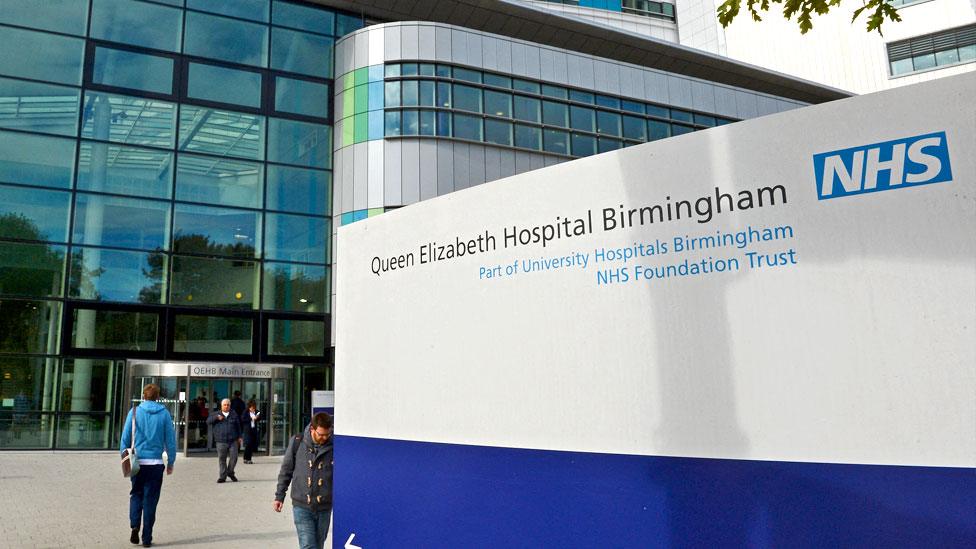University Hospitals Birmingham: Safety fears remain at 'toxic' NHS trust
- Published
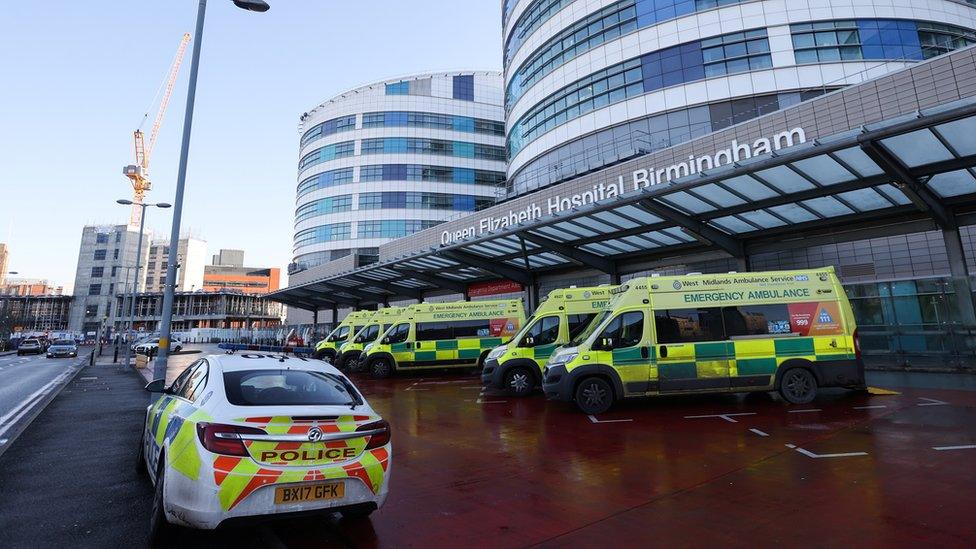
The QE and two more hospitals are run by University Hospitals Birmingham NHS Foundation Trust
One of the largest NHS trusts in England must step up staff safety training in its emergency departments, inspectors have said.
University Hospitals Birmingham (UHB) NHS Foundation Trust must make improvements at several hospitals after a Care Quality Commission (CQC) visit.
Serious issues around A&E safeguarding were uncovered and not all staff had done mandatory training, the CQC said.
The trust said it recognised there were areas that needed improving.
The visits, during April, May and June last year, came after the trust was heavily criticised over cases of bullying and a toxic environment that were revealed in a report, published in March 2023.
The CQC compiled that report after an inspection in December 2022, which happened a week after a joint investigation by BBC West Midlands and Newsnight revealed the climate of fear at the trust that was putting patients at risk.
A warning notice was issued to the trust in that month after serious staffing issues were identified.
On Tuesday, the doctor in charge of medical training for NHS England apologised unreservedly to the family of a medic who worked at UHB who took her own life.
A UHB spokesperson previously said it needed to learn following Dr Vaish Kumar's death after she left a suicide note blaming her death entirely on the hospital where she worked.

Junior doctor Vaish Kumar died in June 2022 and left a suicide note blaming her death on her experiences of working at the QE Hospital
In the latest inspections, the watchdog looked at urgent and emergency care at Birmingham Heartlands Hospital, Queen Elizabeth (QE) Hospital Birmingham, and Good Hope Hospital in Sutton Coldfield.
Dr Manos Nikolousis, who previously exposed a toxic culture at hospitals with BBC News, said he was disappointed by the inspection findings.
"At some point it's not only about management, it's also about individual responsibility of certain consultants and certain colleagues," he said.
"We had the tragic loss of one of the doctors committing suicide and this doesn't seem to shake people's attitudes to become a better culture and a better place."
Improvement opportunities 'lost'
Richard Burden, chair of Healthwatch Birmingham and Healthwatch Solihull, said it was worrying patients were not always protected from harm, as well as there being low staff numbers and inadequate safeguarding procedures.
"These problems have been compounded by the fact that - although many patient safety incidents are escalated and investigated - feedback and lessons learned are not always shared with the staff effectively, meaning opportunities for improvement are lost," Mr Burden said.
Neurosurgery and and cancer services were also assessed at the QE, along with medical services at Good Hope Hospital and Heartlands.
All of those services had been rated as either inadequate or requiring improvement.
Inspectors said they found leaders did not always run services well or manage risk effectively.
People could not always access some services or receive the right care promptly and governance systems were not always effective, the CQC inspection showed.
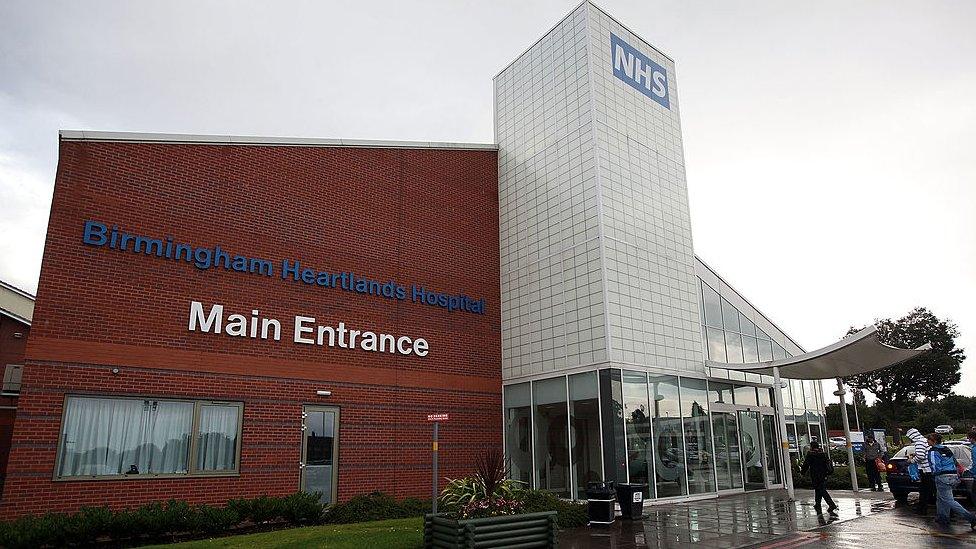
Urgent and emergency care was looked at at Birmingham Heartlands Hospital
However, staff provided emotional support people to minimise their distress and offered support and understanding about patients' condition.
The inspections were carried after the CQC said it received concerning information about some of the services being provided.

Conclusions of the CQC inspection:
Urgent and emergency care at Queen Elizabeth Hospital has again been rated as requires improvement overall
Urgent and emergency care at Heartlands Hospital has improved from inadequate to requires improvement
Urgent and emergency care at Good Hope Hospital has dropped from requires improvement to inadequate
Neurosurgery at Queen Elizabeth Hospital has been rated requires improvement. This is the first time the service has been rated
Cancer services at Queen Elizabeth Hospital has gone down from good to requires improvement
Medical services at Good Hope Hospital have dropped from requires improvement to inadequate
Maternity services at Birmingham Heartlands Hospital remains rated as inadequate

In this visit, the CQC said the trust had not met the requirements of the previously issued warning notice and because of further issues being uncovered, conditions were placed on its registration.
Conditions have also been imposed on the trust's registration for issues around safeguarding in the three urgent and emergency care service departments inspected.
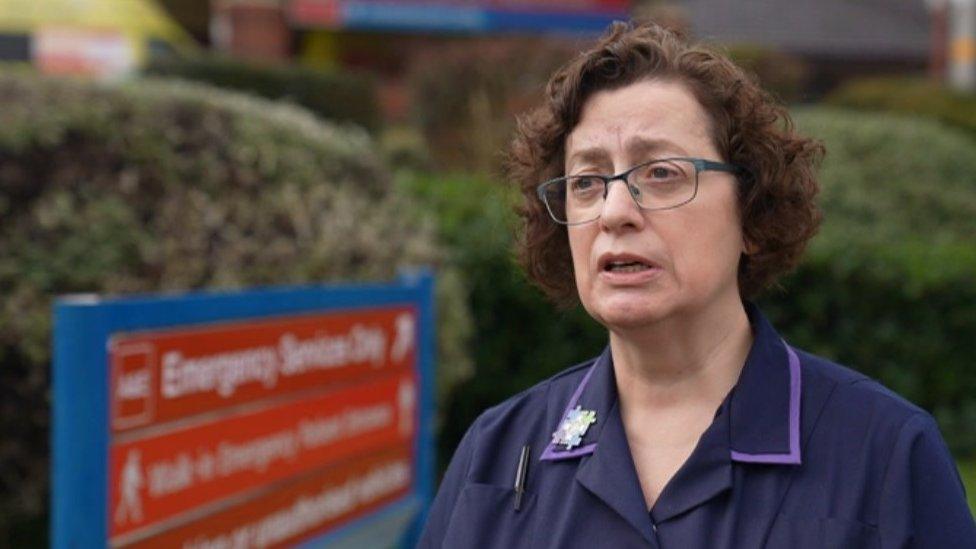
Margaret Garbett, chief nurse at the trust said sustainable change was needed
Margaret Garbett, chief nurse at the trust, said changing culture takes a long time.
"We can't give up on it, we can't just put actions in today and we expect it to change, it's a real long-term sustainable change that's needed," she said.
In a statement Jonathan Brotherton, the trust's chief executive officer, said he was confident that since the inspections, "focussed and positive action" had been taken to introduce improvements that would continue through this year and next.
"Providing safe and excellent care to our patients is what is most important to us; we all want patients to be confident and assured that the care and treatment provided at our hospitals is safe and we want our colleagues to all feel proud of the quality of care that they are giving," he said.
"I am heartened to hear that the inspectors noted how our teams treated patients with compassion and kindness, supporting them, their families and carers to understand their condition and make decisions about their care and treatment.
"This clear demonstration of compassionate care is something that I would like to echo."

Follow BBC West Midlands on Facebook, external, X, external and Instagram, external. Send your story ideas to: newsonline.westmidlands@bbc.co.uk, external
- Published13 February 2024
- Published19 October 2023
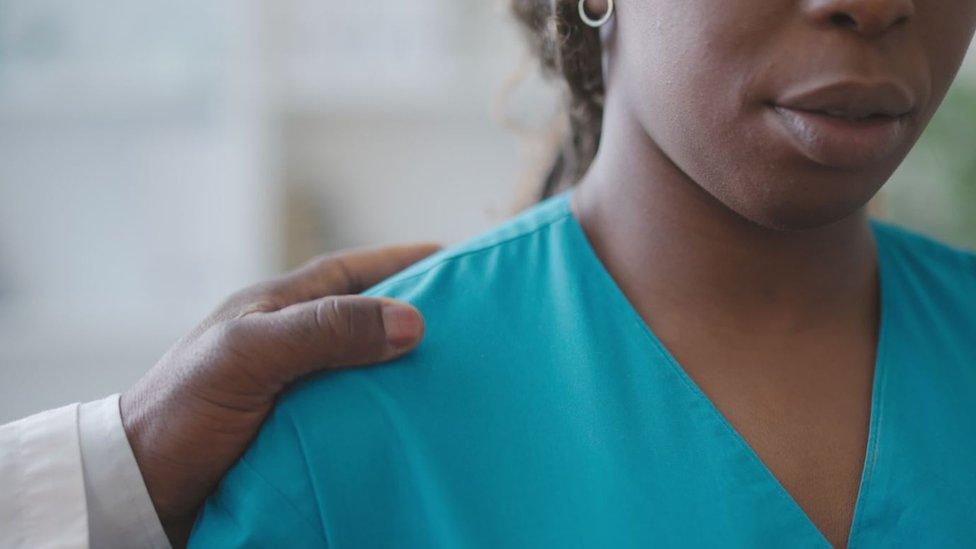
- Published27 September 2023
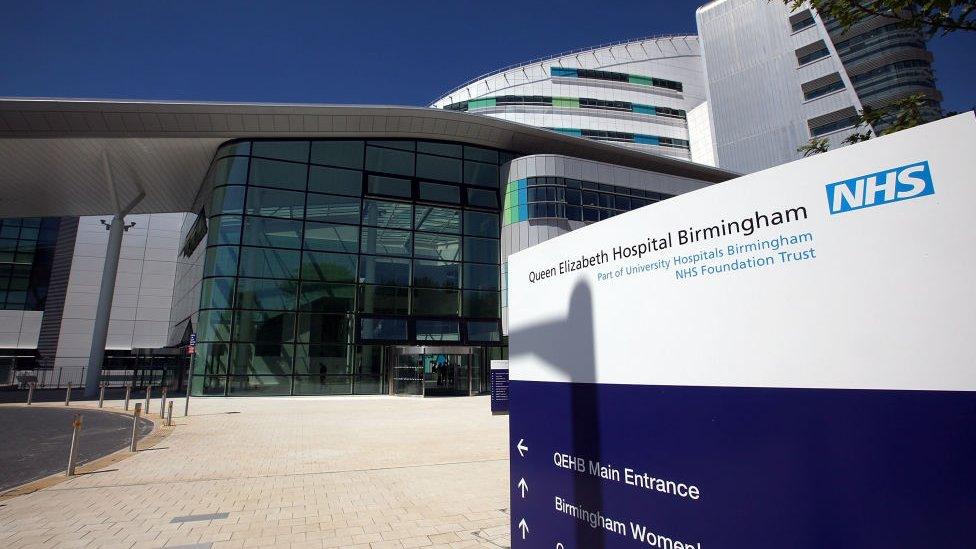
- Published29 March 2023
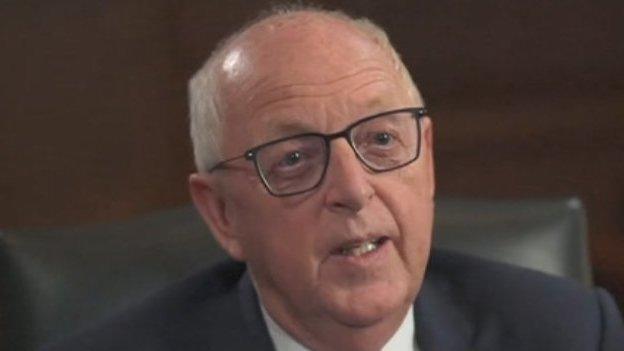
- Published14 March 2023
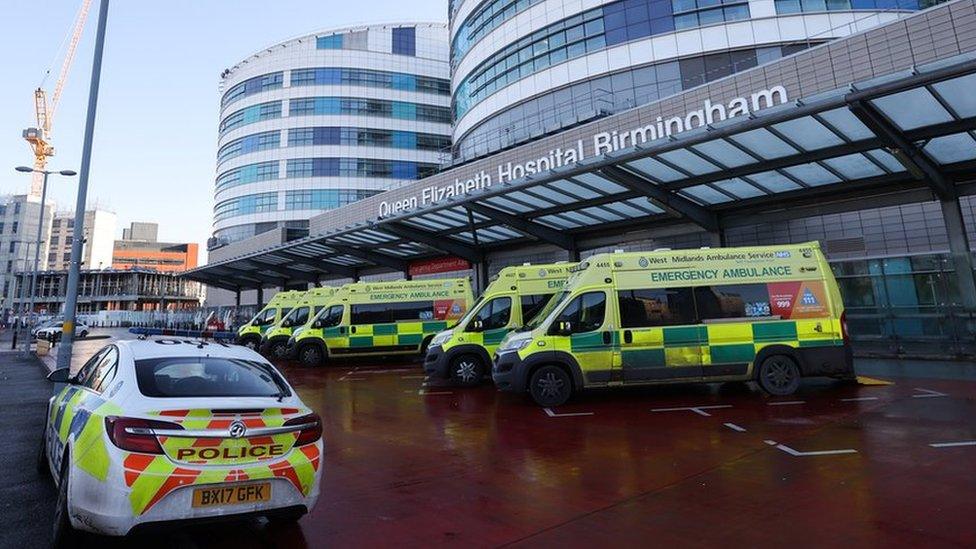
- Published13 January 2023
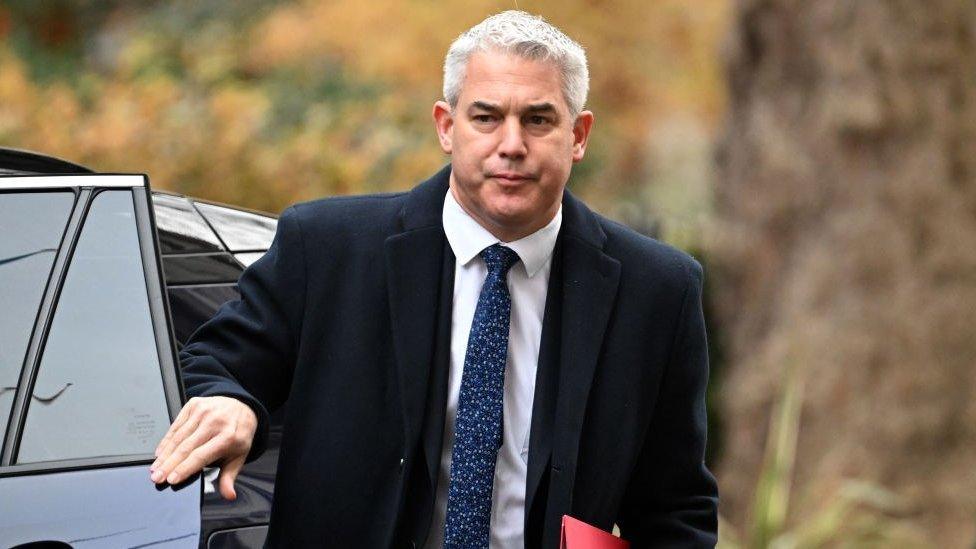
- Published1 December 2022
